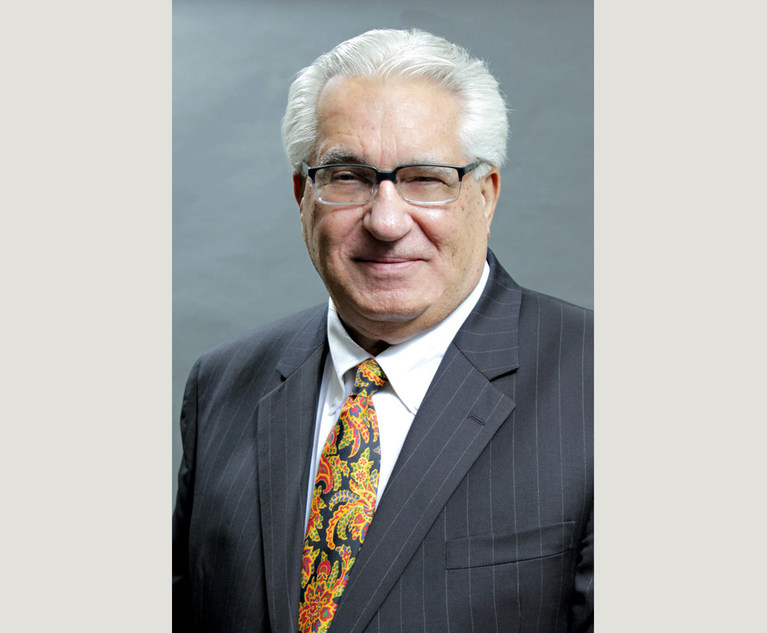The chairman of the Disciplinary Review Board, Maurice J. Gallipoli, has stated in a letter to New Jersey Supreme Court members that, absent a rule change, he will continue voting to disbar attorneys who fail to file the affidavit required under Rule 1:20-20.
The letter, in which Gallipoli explained his recurrent dissenting opinions in similar cases, arose out of a disciplinary case that was decided last month.
“Once again,” stated Gallipoli in his letter dated November 30, 2021, “I dissent from my colleagues and vote to recommend respondent’s disbarment, not because of respondent’s disciplinary record, but because an attorney who fails to comply with an Order of the Court to file the affidavit that R. 1:20-20 requires of all suspended attorneys, in my humble opinion, manifests a disdain for the disciplinary process and the responsibilities attendant to the privilege of being permitted to practice the profession of the law.”
In the underlying matter, attorney George R. Saponaro of Mount Holly, has been temporarily suspended from the practice of law since January 2020 for failure to comply with a District IIIB Fee Arbitration Committee order to return a $2,000 retainer to a client. In a Supreme Court order filed June 30, 2022, Saponaro was censured for failing to cooperate with disciplinary procedures and for conduct prejudicial to the administration of justice.
Saponaro, who remains suspended, was to return the retainer to Ana Block, who paid Saponaro $2,000 to represent her grandson in a criminal matter, but he took no action in the case. Block subsequently found Saponaro’s phone was disconnected and his office vacant.
According to the DRB decision in this matter, Saporano failed to comply with R. 1:20-20, which requires that he “shall within 30 days after the date of the order of suspension (regardless of the effective date thereof) file with the director the original of a detailed affidavit specifying by correlatively numbered paragraphs how the disciplined attorney has complied with each of the provisions of this rule and the Supreme Court’s order.”
After Saporano failed to comply and failed to respond to the OAE’s attempts to contact him, their recommendation to the DRB was to impose a censure, according to the decision. Seven board members voted for censure, one voted for a three-month suspension, and Chair Gallipoli voted for disbarment.
In his dissent, Gallipoli addressed his reasons for continuing to vote for disbarment in cases such as this one.
“I am fully aware that the court has rejected a recommendation by the Disciplinary Review Board to address the recurring failure of suspended respondents to comply with the requirements of R. 1:20-20,” read Gallipoli’s letter. “While I disagree with the court’s rejection, I respect the court’s decision and mean no disrespect by filing a dissent in this case and in similar cases in the future.”
“Absent enactment of the board’s recommendation or some other remedial rule change to address this problem,” continued Gallipoli, “I will continue to vote for disbarment so as to compel respondents to appear before the court to explain why they have not complied with the court’s order requiring the filing of the R. 1:20-20 affidavit.”
The Law Journal was unable to locate contact information for Saporano.
NOT FOR REPRINT
© 2024 ALM Global, LLC, All Rights Reserved. Request academic re-use from www.copyright.com. All other uses, submit a request to [email protected]. For more information visit Asset & Logo Licensing.


 Maurice Gallipoli, with Porzio Bromberg & Newman. Courtesy photo
Maurice Gallipoli, with Porzio Bromberg & Newman. Courtesy photo





